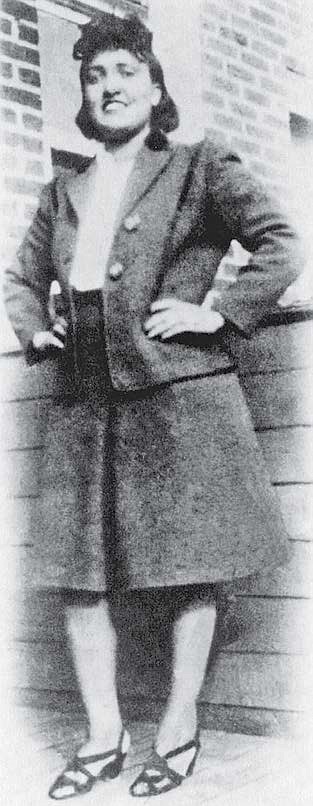The Unethical Treatment of Henrietta Lacks Still Lingers In Healthcare
The Unethical Treatment of Henrietta Lacks Still Lingers In Healthcare
By: Katherine Newman
Dr. Howard Jones discovered a malignant tumor on Henrietta Lacks cervix in 1951 at Johns Hopkins Hospital. The events that followed led to the greatest discovery in medical history. Lacks began undergoing radium treatments shortly there after and ultimately died in October of that year, according to John Hopkins Medical.
Samples of her cancer cells were taken, unknowingly to Lacks, during a biopsy. According to John Hopkins Medical, the cells were sent to Dr. George Gey who had been collecting cells from every patient with cervical cancer at The Johns Hopkins Hospital.
All of the other cells Dr. Gey had collected died, but the cells from Lacks multiplied. They were saved and cloned and shared with medical researchers across the world. The cells became known as “HeLa” cells, according to Johns Hopkins Medical.
Since then HeLa cells have been used to develop treatment for Parkinson’s disease, AIDS, influenza, some cancers, a vaccine for polio, and research for space travel, according to The Jackson Laboratory. These are just a few of the endless examples of the ways that HeLa cells have helped advance modern medicine. Without Lacks, none of it would have been possible.
The Lacks family didn’t know that their mother’s cells were being used for medical research until two decades after her death, according to The Immortal Life of Henrietta Lacks by Rebecca Skloot.
In 1970, doctors returned to the Lacks family home to draw blood from the Lacks children to learn more about their mothers genetics. The doctors did not tell the family why they needed the blood sample, so they assumed it was to screen for diseases. It was during this encounter that the family first heard that their mothers cells were alive and multiplying which was confusing to them, according to The Jackson Laboratory.
“It was a heavy price for her family to have paid, and it doesn’t make it right to say that the ends justify the means. But the amount of good that has been done in the world for everybody is unmeasurable. That’s a debt
that we can never repay, but it is a debt that we can honor and should try
to repay and I don’t believe that we have done a fraction of what could be
done for that woman and her family,” said Dr. Monica Peek, director of research, MacLean Center for Clinical Medical Ethics at The University of Chicago.
Peek attended Johns Hopkins for medical school where Lacks story took place. Still, she didn’t fully understand the story until she read The Immortal Life of Henrietta Lacks by Rebecca Skloot.
“It’s a miracle really, her cell line is unlike anything I’ve ever seen or heard of. If the book wasn’t non-fiction I wouldn’t have believed it,” said
Peek.
Unfortunately, it was not uncommon for black people to be mistreated or used for medical research during the 50’s. This history of medical inequity has not been forgotten.
Peek is a primary care physician and said she spends about 80 percent of her time doing research on health disparities and health equity issues primarily for African Americans.
“I think about the reasons that black people continue to have worse health and get treated in ways that are less equal in the healthcare system and ways that we can do better. Some of those reasons are rooted in those historical ways that black people were treat by physicians in the public healthcare system in the past and our collective memory of those things that get handed down generationally,” said Peek.
Peek said that she knows black people are less likely to seek medical attention, hesitant to trust the advice of their physician, and less likely to take medication and that it is directly related to these past instances of blacks being mistreated by medical professionals.
“These things linger and make it challenging for African Americans to be fully trusting of the health care system. Some of those logical choices that we make are in response to the lived experience we’ve had as people
and those which negatively impact our health. These kinds of things have had a historical legacy that continues to impact the health of African Americans on a daily basis,” said Peek.
There are more racial minorities in medicine today, which helps create a more comfortable space for African Americans to seek medical attention, according to Peek. Getting black people to want to seek out medical care is still a challenge, but Peek said she knows it is encouraging for her patients to see her as their physician.
“There is for the most part comfort, pride, and trust that comes with racial concordance for African Americans. People feel like there has been a safe space created where they don’t have to be afraid and they can potentially get better care,” said Peek. “Certainly for me I see that all the time from my patients in addition to just the cultural pride of seeing one of us who has made it and the happiness of seeing successful black women.”
The story of Henrietta Lacks will never be forgotten, but it cannot be denied that without her cells millions of people would not have received
the healthcare that they need.
Latest Stories
- Legacy Speaks: Mapping Ida B. Wells' Imprint – A Tribute to Ida B. Wells on Her Birthday
- Cook County Commissioner Donna Miller Launches Congressional Campaign
- Community’s Voice Shapes Future Leadership
- Chicago Board of Education Approves Resolution Launching Healthy Green Schools Pilot Program
- CVS Health opens new Workforce Innovation and Talent Center in Chicago
Latest Podcast
STARR Community Services International, Inc.

